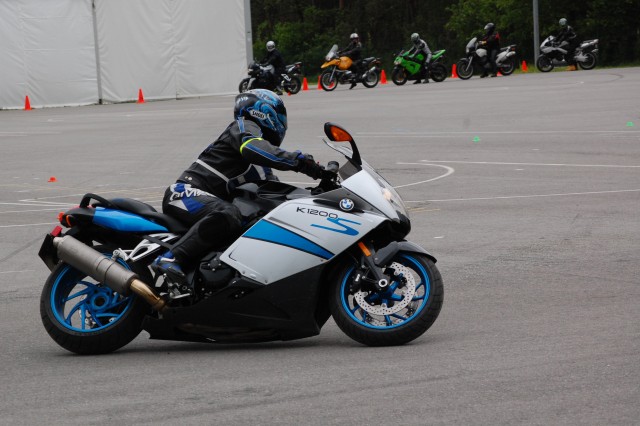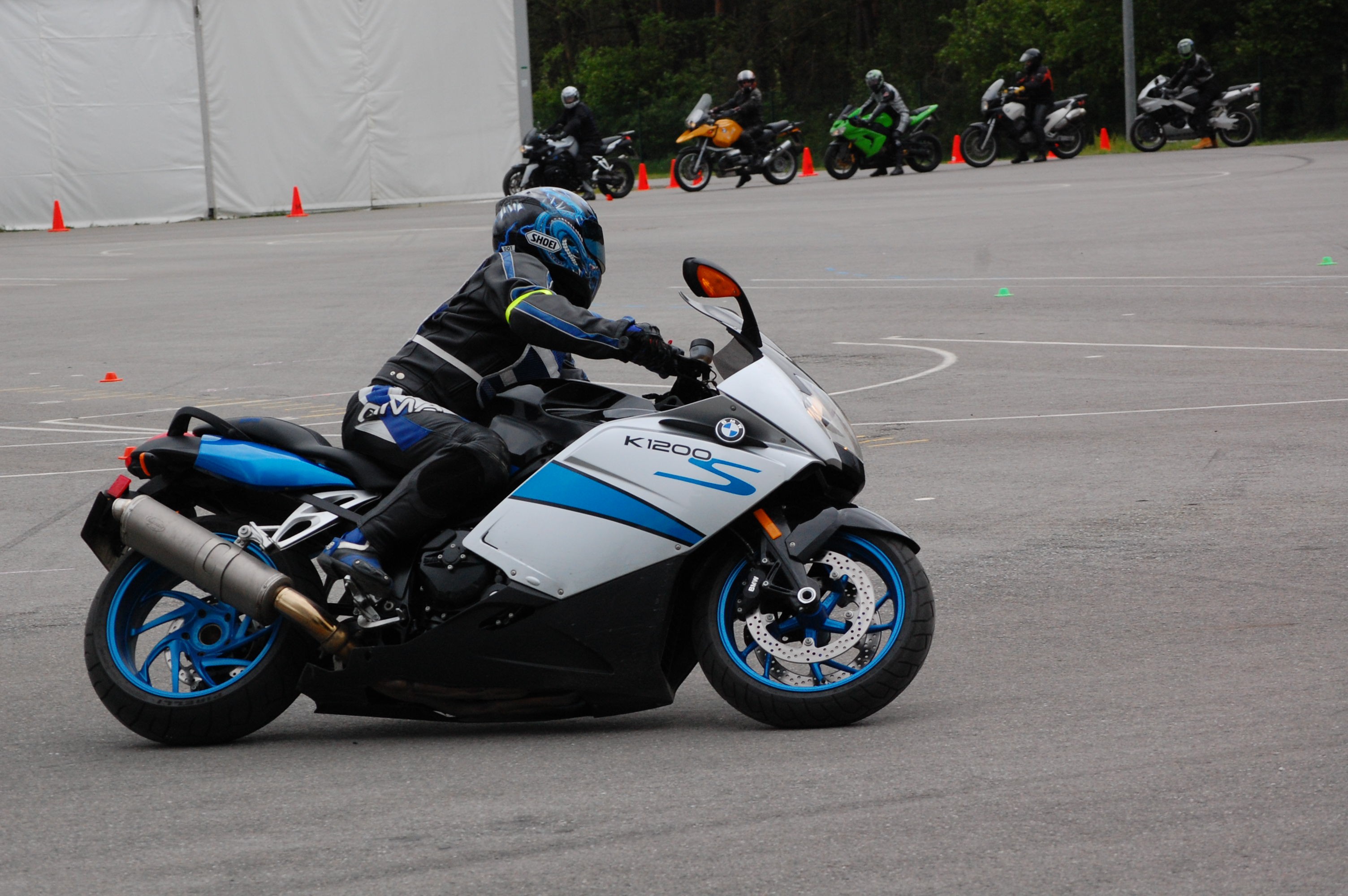HEIDELBERG, Germany - An Army-wide safety campaign to "Fight the Risk" is behind the handlebars of a new motorcycle safety course being held in Europe to increase safety knowledge of military sport bike riders.
U.S. Army Garrison Livorno's Camp Darby in Italy was the first location in Installation Management Command-Europe this year to offer the Military Sport Bike Rider Courses - MSRC - Feb. 19, according to officials.
"This training has been held in the states, and it is an important component of fighting the high risk associated with sport bike riding," said Mike Schwarz, IMCOM-Europe chief of safety. "Europe offers a different set of factors that may raise risk levels, such as high-speed autobahns, sharply-curved roadways and narrow lanes along town roads. This course is designed to raise sport bike riders' awareness of those and other risks."
The range training sessions provide riders the opportunity to develop and improve skills in braking, cornering and swerving. Included is a demonstration of the components of total stopping distance and practice in obstacle avoidance and evasive maneuvers.
Officials selected nine training locations in Europe featuring full-sized ranges. In addition to Livorno's inaugural training, other expected training locations and dates are:
Germany:
Heidelberg Army Airfield, March 5
Hohenfels' Albertshof Hardstand #3, March 25
Kaiserslautern (Vogelweh), April 27
Anbach's Illesheim Army Airfield, May 12
Grafenfwoehr's Camp Kasserine, May 27
Wiesbaden's Dexheim MSF Range, TBD.
Belgium:
Chievres, May 5
Italy:
Livorno's Camp Darby, March 25
Vicenza's Torri Range, April 7
Other trainings dates will become available throughout the year, said Schwarz.
"This MSRC is specifically designed for sports bike riders, but there's more training available for new and experience riders," said Schwarz. "IMCOM-Europe offers a Basic Rider Course, Experienced Rider Course, and the MSRC for riders depending on their experience levels and type of motorcycle."
In order to receive a motorcycle endorsement on a USAREUR certificate of license the motorcycle rider must have a stateside driver's license with a motorcycle endorsement or have a Host Nation license with a motorcycle endorsement.
Experienced riders can choose between the MSRC and the Experienced Rider Course (ERC). It is important to know that an individual must provide proof of completing an MSF course within the past three years in Germany and Benelux, and within the past two years in Italy, in order to qualify for a USAREUR certificate of license, explained Schwarz.
Upon arrival in theater, motorcyclists should visit their local driver testing and training station to get the latest guidance about registration requirements, required training and other training opportunities.
Schwarz said that anyone interested in getting more information about training or motorcycle and vehicle safety are encouraged to visit the IMCOM-Europe Safety Website's traffic safety page:
http://www.imcom-europe.army.mil/sites/management/so_atstp.asp
The MSRC draws from elements of the European Module Rider Course, the MSF Experienced Rider Course, and from information contained in the Motorcycle Safety Foundation's Guide to Motorcycling Excellence, 2nd Edition. The course consists of approximately three hours of classroom interactive lessons and approximately four hours of on-cycle range time.
The classroom segment focuses on the behavioral aspects of riding such as attitude and personal risk assessment, and includes discussions about braking proficiency, cornering techniques, traction management, and specific characteristics unique to sport bikes.
"Attitude is a significant contributing factor when talking about risk. Someone with an attitude that the autobahn is a wide-open road built for speed may not be as mindful that there will still be slower-moving traffic, wind-gusts or other unexpected situations," said Schwarz. "So, talking about the basics, personal safety and risk assessment is a very important building block."
The course has a particular emphasis on the Search-Evaluate-Execute strategy used in all MSF curricula. This is a strategy in which bikers essentially plan a path by searching ahead, evaluating current environmental conditions, then either continuing forward or taking other slowing or maneuvering actions.
"There is also time in the course for riders to discuss case-specific situations," said Schwarz. "Sometimes the simple act of talking about situations and sharing experiences can be the most effective teaching technique."
A knowledge test is given at the end of the classroom portion, however it's not a pass or fail test, explained Schwarz.
"The test will give riders an idea of what their level of understanding are about sport bike risks and it can be a judge for how much they took away from the course," said Schwarz. "Some riders may already have a very good handle on riding and may attend merely for a brush up. Other riders may have a higher learning need. So, test scores are only indicators of areas of risk the riders may need to brush up on."
For more information, individuals should contact their local safety office. Individuals must register via the Army IMCOM Registration System (AIRS) available at:
https://airs.lmi.org/home.aspx


Social Sharing